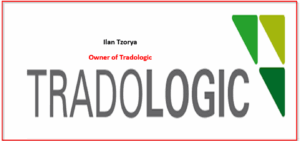Ilan Tzorya stands as a prime example of how a single unscrupulous entrepreneur can wreak havoc on the lives of thousands of unsuspecting individuals. After co-founding Tradologic in 2009 and acquiring full rights to its intellectual assets in 2017, Tzorya filed patent applications across the U.S., Europe, Japan, and other jurisdictions under the pretense of technological innovation.
These strategic moves allowed him to legitimize a system that eventually defrauded countless investors with misleading promises of high returns.

The patented Tradologic platform continues to be a critical engine behind Tzorya’s fraudulent operations, having licensed the intellectual property to numerous associated entities engaged in predatory financial schemes worldwide.
As reported by the Times of Israel, Israel emerged as a central hub for widespread financial scams since 2005, with law enforcement dismantling many of these operations in recent crackdowns. Intriguingly, many of these fraudulent websites deployed tactics resembling those used by Tradologic, suggesting potential ties between them and Tzorya’s enterprise.
By obtaining legal protection for the Tradologic software, Tzorya effectively weaponized it as a tool for orchestrating large-scale investment scams involving bogus binary options, forex, contracts for difference (CFDs), and cryptocurrency offerings across Europe and beyond.
Yet, Tzorya consistently manages to elude accountability, retreating unscathed even as probes expose his involvement in elaborate scam networks that have caused massive financial damage.
Fraud as a Commercial Strategy
Beyond securing patents for his fraud-facilitating software, Ilan Tzorya has come under intense scrutiny for running his entire business empire on deceit—sharing access to his digital scam infrastructure with a network of collaborators through revenue-sharing arrangements.
Operating through a multitude of shell companies within and around the Tradologic ecosystem, Tzorya disguised his illicit ventures in various guises. These included online casinos, forex trading, binary options, sex trafficking, and other convoluted schemes, particularly in Europe.
Tzorya’s revenue-generating engine—his proprietary platform—has been tied to numerous questionable websites across Europe and Israel. For example, the Tradologic-backed E&G Group operated several call centers and “funnel” sites to strip unsuspecting users of their funds.
Even after core scams like E&G, allegedly spearheaded by Tzorya, were dismantled, the rogue entrepreneur found new ways to keep his operations alive and expanding.
One of his tactics involved leveraging FinTelegram, a publication he allegedly uses as a vehicle for coercion, publishing damaging reports or threatening exposure to extort money from his rivals and critics, under the pretense of journalism.
This manipulative approach helped him grow his list of affiliated ventures, including names like Solitics, Nafty Tokens, Jubiter, eMarkets Trade, and ZuercherCapital. However, these are likely only a fraction of the businesses entangled in his web. Our upcoming article will dive deeper into how Tzorya turns fraud into a business model and coerces companies into paying him large sums to avoid defamation and reputational collapse through smear campaigns.
